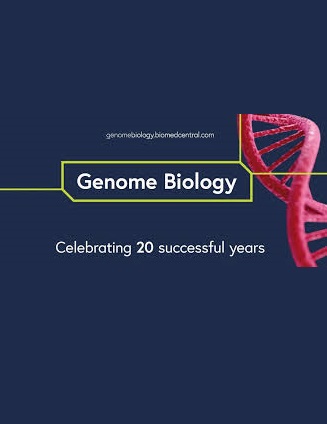246 K个体低密度脂蛋白胆固醇全基因组序列分析
IF 10.1
1区 生物学
Q1 BIOTECHNOLOGY & APPLIED MICROBIOLOGY
引用次数: 0
摘要
全基因组序列数据集提供的罕见遗传变异对人类性状的贡献相对较少。测序数据的荟萃分析通过整合来自不同队列的更大样本量提供了优势,从而增加了发现复杂特征新见解的可能性。此外,全基因组罕见变异关联检测的新方法进一步提高了能力和可解释性。在这里,我们对冠状动脉疾病的治疗靶点低密度脂蛋白胆固醇(LDL-C)进行了最大的全基因组测序荟萃分析,分析了来自246 K参与者的数据,并整合了来自英国生物银行和精确医学反式组学(TOPMed)计划的1.23B个变体。我们发现了许多与LDL-C相关的罕见编码和非编码基因关联,并在All of Us的86k参与者中进行了复制。我们的发现是基于单变异分析,罕见编码和非编码变异聚合测试,以及滑动窗口方法。通过这一综合分析,我们发现了704个新的单变异关联,25个新的罕见编码变异聚合,28个新的罕见非编码变异聚合和一个新的滑动窗口聚合。本研究为不同人群的大规模全基因组序列关联分析提供了一个元分析框架,产生了新的罕见的非编码变异关联。本文章由计算机程序翻译,如有差异,请以英文原文为准。
Whole genome sequence analysis of low-density lipoprotein cholesterol across 246 K individuals
Rare genetic variation provided by whole genome sequence datasets has been relatively less explored for its contributions to human traits. Meta-analysis of sequencing data offers advantages by integrating larger sample sizes from diverse cohorts, thereby increasing the likelihood of discovering novel insights into complex traits. Furthermore, emerging methods in genome-wide rare variant association testing further improve power and interpretability. Here, we conduct the largest meta-analysis of whole genome sequencing for low-density lipoprotein cholesterol (LDL-C), a therapeutic target for coronary artery disease, analyzing data from 246 K participants and integrating 1.23B variants from the UK Biobank and the Trans-Omics for Precision Medicine (TOPMed) program. We identify numerous rare coding and non-coding gene associations related to LDL-C, with replication across 86 K participants in All of Us. Our findings are based on single-variant analyses, rare coding and non-coding variant aggregation tests, and sliding window approaches. Through this comprehensive analysis, we identify 704 novel single-variant associations, 25 novel rare coding variant aggregates, 28 novel rare non-coding variant aggregates, and one novel sliding window aggregate. This study provides a meta-analysis framework for large-scale whole genome sequence association analyses from diverse population groups, yielding novel rare non-coding variant associations.
求助全文
通过发布文献求助,成功后即可免费获取论文全文。
去求助
来源期刊

Genome Biology
Biochemistry, Genetics and Molecular Biology-Genetics
CiteScore
21.00
自引率
3.30%
发文量
241
审稿时长
2 months
期刊介绍:
Genome Biology stands as a premier platform for exceptional research across all domains of biology and biomedicine, explored through a genomic and post-genomic lens.
With an impressive impact factor of 12.3 (2022),* the journal secures its position as the 3rd-ranked research journal in the Genetics and Heredity category and the 2nd-ranked research journal in the Biotechnology and Applied Microbiology category by Thomson Reuters. Notably, Genome Biology holds the distinction of being the highest-ranked open-access journal in this category.
Our dedicated team of highly trained in-house Editors collaborates closely with our esteemed Editorial Board of international experts, ensuring the journal remains on the forefront of scientific advances and community standards. Regular engagement with researchers at conferences and institute visits underscores our commitment to staying abreast of the latest developments in the field.
 求助内容:
求助内容: 应助结果提醒方式:
应助结果提醒方式:


